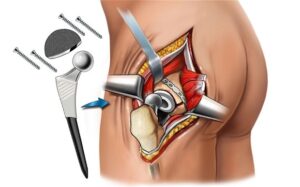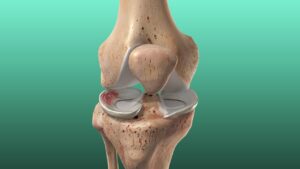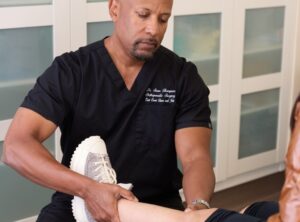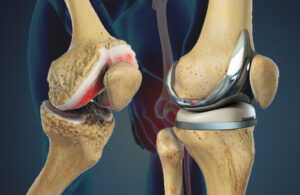Experiencing pain in your hip can limit your daily life movement, hinder sleep, and diminish your overall daily activities. When physical therapy and other treatment options, such as medication, prove futile, it may be time to consider a hip replacement. If you live in Englewood, NJ, and are preparing for or considering a hip replacement, it is crucial to understand the comprehensive journey before and after surgery for optimal recovery.
This blog will explore the expectations surrounding the timeline of the surgery, recovery milestones, and rehabilitation.
What Is Hip Replacement Surgery?
As with most surgeries, a hip replacement or total hip surgery involves removing the damaged components of the hip joint and replacing them with implants.
This procedure is commonly performed on patients with these situations:
- Osteoarthritis
- Rheumatoid arthritis
- Post-traumatic arthritis
- Avascular necrosis
- Hip fractures or injuries.
Hip replacement surgeries are among the most commonly performed orthopedic surgeries, and in most cases, they improve mobility, alleviate pain, and enhance the overall quality of life of the patient.
When Is It Time for Hip Replacement?
If you are suffering from any of the following symptoms, consulting with an orthopedic specialist for a hip replacement in Englewood NJ, may be indicated.
- Constant, lingering pain in the hip or groin region, even during periods of rest
- Difficulty in walking, bending, or standing from a seated position
- Stiffness that ranges within motion restrictions
- Physical therapy and medication do not work sufficiently
- Pain that disrupts sleep or necessary daily functions
If you would like to know more about these early warning signs, feel free to look at our last article on Hip Replacement Basics.
Preparing for Your Hip Replacement
1. Finding an Orthopedic Surgeon
Obtaining a qualified orthopedic surgeon in Englewood, NJ is the first step towards successful surgery. Ensure they are board-certified and have vast experience in performing joint replacements, along with offering both traditional and minimally invasive surgical options.
2. Medical Tests
Your surgery will be preceded by a number of medical tests aimed at determining whether you are a suitable candidate for the surgery. You may need to get blood tests as well as X-rays, EKGs, and physical exams.
3. Pre-Surgical Planning
As with any surgery, your surgeon will issue some guidelines, including:
- Medication restrictions
- Pre-surgery support and equipment arrangements at home
- Pre-surgical physical therapy
- Leg muscle strengthening exercises
- What to Expect on Surgery Day
A hip replacement procedure is usually done in 1 to 2 hours under general or spinal anesthesia. Depending on the patient’s condition, some techniques used to perform the surgery may be minimally invasive, which means the size of incisions will be smaller, hence a quicker recovery period and less pain.
You will be taken to a recovery room, as is standard postoperative procedure. Patients are typically encouraged to begin mobilizing within 24 hours after the surgery.
Immediate Post-Surgery Recovery (0–2 Weeks)
The first few weeks are vital to balancing pain and movement post-surgery, which is essential after hip replacement surgery in Englewood, NJ.
What to Expect:
A hospital stay of 1-2 days is common.
Pain and swelling are normal, and most patients need to be medicated for it.
Physical therapy will start almost immediately to aid movement recovery.
Patients will require crutches or a walker as a mode of ambulatory assistance in the initial stages.
Home Preparation:
- Prep your home to be “recovery-ready”:
- Cleared pathways to avoid tripping hazards
- Grab bars are installed in bathrooms for enhanced safety
- Use of elevated seating and avoidance of low chairs and seating devices
- Assistance arranged for meal preparation, errands, or transport
- Recovery Milestones: Two to Six Weeks After Surgery
- Most patients make significant gains in mobility during this time.
Progress Includes:
- Reduction in pain and swelling
- Improvement in walking with increased independence from aids
- Return to performing light household chores
For this situation, physical therapy is essential. You will practice exercises to help improve hip flexibility, strength, and balance for daily mobility.
After Six Weeks: Long-Term Recovery
A return to driving and light desk work is common by 6 to 12 weeks, alongside some recreational activities. It is essential to avoid high-impact exercises like running or contact sports during the early stages of recovery.
Continuation of Care Following Your Procedure:
- Adhere diligently to physical therapy sessions
- Keep a healthy weight
- Maintain an active lifestyle, engaging in swimming or cycling
- Attend scheduled follow-up visits with the orthopedic surgeon
- Possible Complications to Monitor
While there is a high success rate associated with hip replacement surgery, the following complications may arise:
- Thrombosis
- Surgical site infection
- Dislocation of the implant
- Asymmetry of the limbs
- Wear or loosening of the construct
Acute symptoms such as pain, swelling, or erythema may present around the surgical incision and require prompt attention. Surgeons in Englewood NJ manage these complications with appropriate tailored strategies.
Returning to Baseline Function
With the appropriate post-operative rehabilitation, the majority of patients can return to their baseline function within 3 to 6 months. Continued activity should include regular falls risk assessment and management.
Patients appreciate the functional improvements that the surgical interventions provide. These improvements are frequently described as a “second lease of life” that they can now enjoy walking, sleeping, and partaking in hobbies such as gardening, golfing, and traveling without pain.
What is the Importance of Hip Replacement in Englewood, NJ?
Englewood, NJ, is conveniently located near some of the best orthopaedic specialists in the region. Here, we offer:
- Customized treatment programs
- Less invasive surgical options
- Modern diagnostic imaging technologies
- Physical therapy is offered onsite
- Empathetic postoperative care
Our orthopedic surgeons are certified and are experts in performing hip replacement surgeries and more that line up with your lifestyle preferences and recovery objectives.
Conclusion
Englewood NJ residents considering hip replacement relief surgery should note that it has the implicit to dramatically better there quality of life. Anticipating the issues of surgery and actively engaging in the recovery plan enables reclaiming control over mending from surgery and continuing cherished conditioning.
Enhanced autonomy, lowered persistent discomfort, and elevation of life’s enjoyment are possible when there’s an effective strategy in place, a complete surgical platoon, and a comprehensive recuperation program following surgery.
Our orthopedic experts stand ready to offer tailored and advanced hip replacement services to patients from Clifton, Jamaica, and New York. Across the region, we accept patients for precision diagnostics, surgery using the latest techniques, and post-operative care delivered with compassion. No matter the starting point, the goal remains to journey towards pain-free living.







